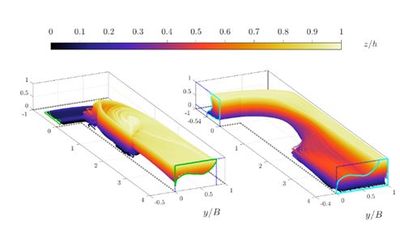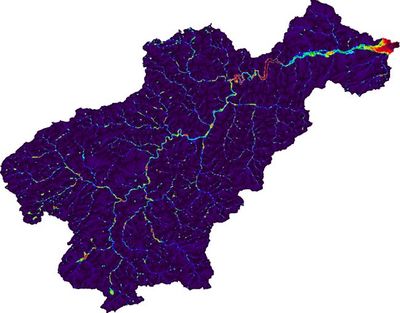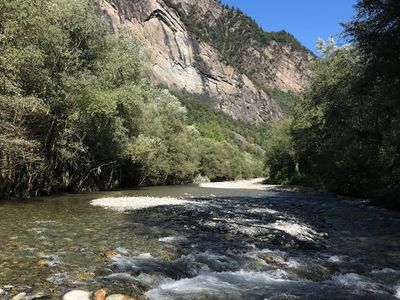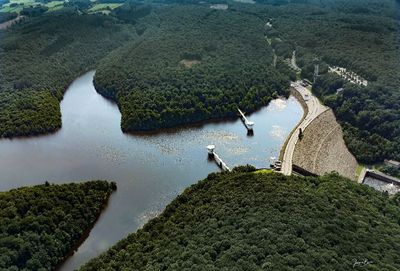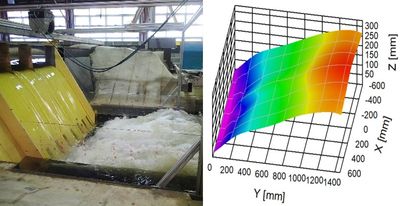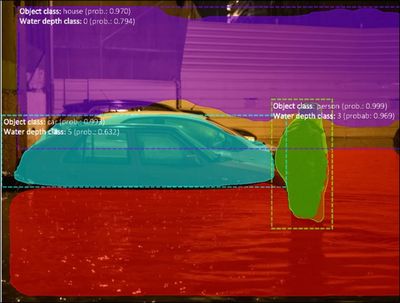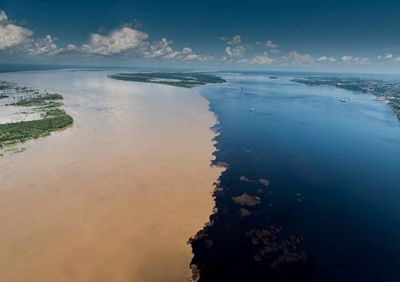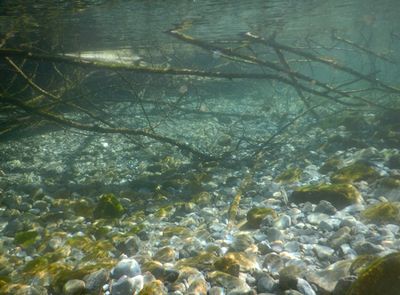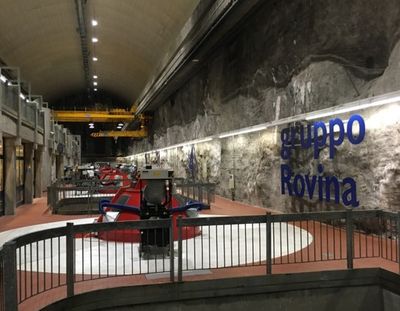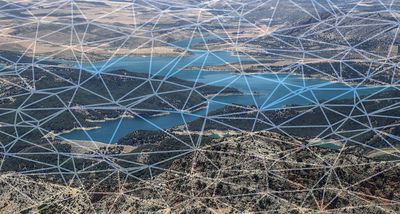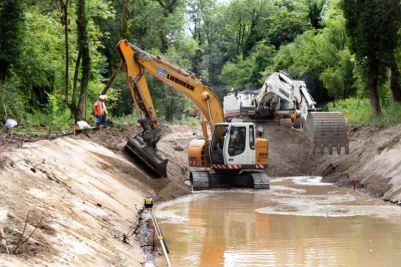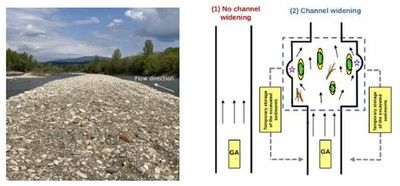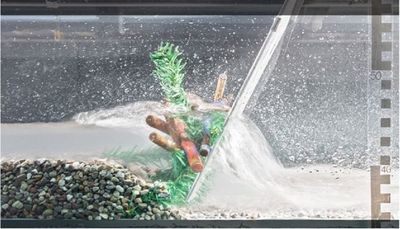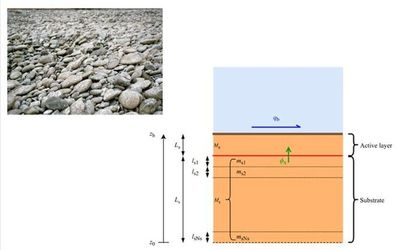In our mission, we procure research which responds to the societal challenges expressed in global development frameworks, capable of promoting societal change, by investigating processes in the natural and built environment which are determinant for the design, planning and implementation of sustainable water infrastructures prepared for global change.
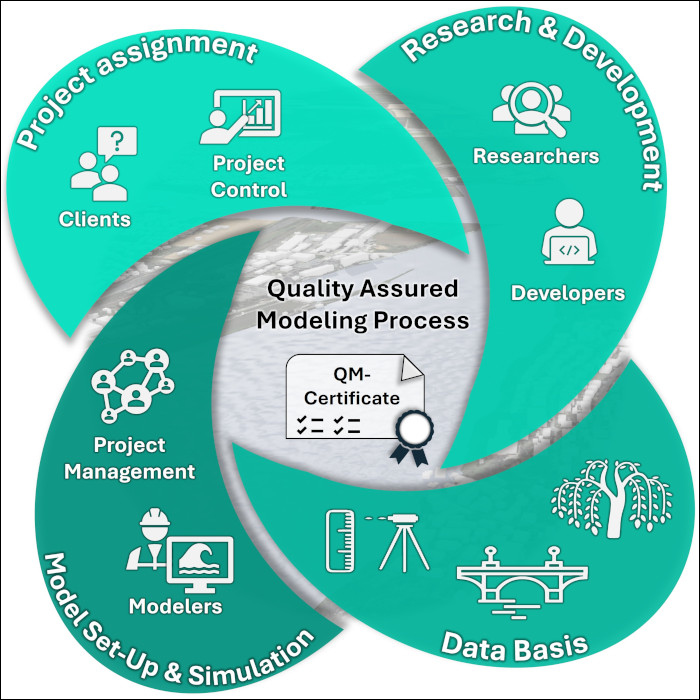
Link to the project page
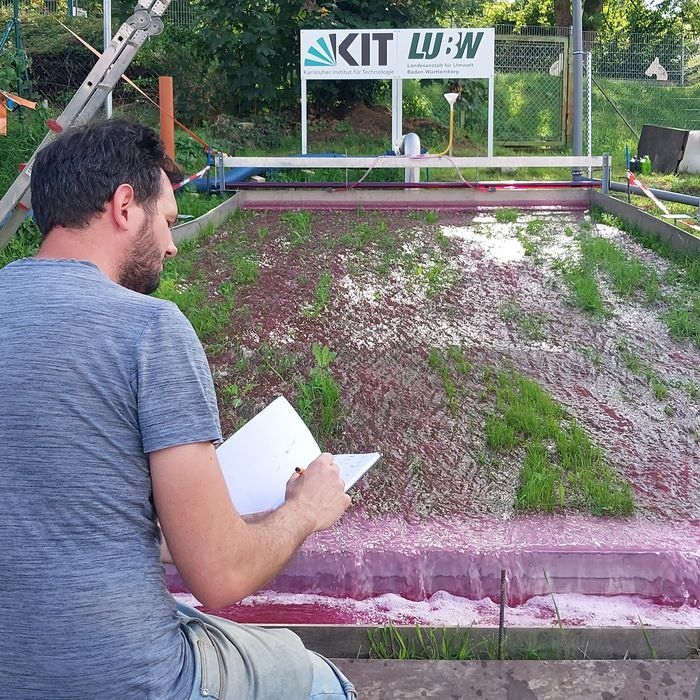
Link to the project page

Link to the project page
Hydraulic Structures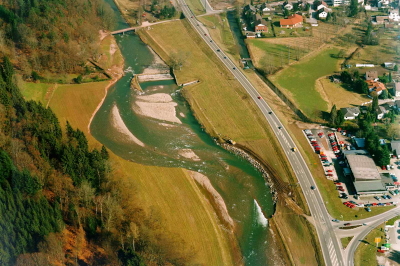
- Experimental investigation of flow patterns in hydraulic infrastructure (e.g. flood retention basins, outlet and inlet structures, hydropower plants, locks)
- Optimisation of hydraulic structures and development of new hydraulic concepts
Hydraulics and morphodynamics of near-natural watercourses
- Vegetation hydraulics, resistance behaviour of vegetation
- Consideration of bedload balance (locally and at catchment level)
- Analysis of morphological potential, field studies
Watercourse development measures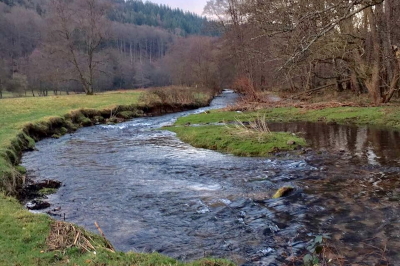
- Development of measures to improve watercourse structure at local level (focus: restricted reaches)
- Abiotics and biotics: river habitats
- Deadwood transport in rivers
- Ecological connectivity of rivers: Upstream and downstream migration of fish
Multiphase flows in hydraulic engineering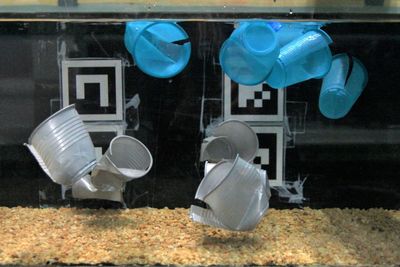
- Flows of density-stratified fluids
- Oxygen input in standing and flowing waters
- Mobilisation, flocculation and sedimentation of suspended matter (reservoir sedimentation)
- Fluvial transport and retention of plastics in rivers
- Inception and development of air-water flows
Simulation of hydraulic structures
- Application of one- and multi-dimensional hydrodynamic-numerical (HN) methods for the analysis of complex flow conditions (steady-state, transient)
- Development and implementation of application-oriented HN methods for use in practice
- Extensive pre- and post-processing
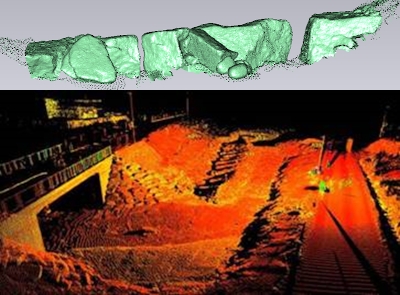 GIS technologies
GIS technologies
- Creation of digital terrain models under consideration of hydraulic requirements
- Determination of inundation areas as well as damage potentials in endangered areas
- Programming of application-optimized tools (GIS shells)
- 3D visualization (animation / real-time navigation)
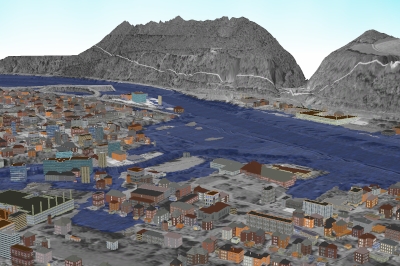 Flood management
Flood management
- GIS-based hydraulic river basin modelling
- Quantification of the effects of construction measures on flood discharge
- Risk assessment and damage potential analyses
- Creation of hazard and risk maps as a basis for flood prevention
- Real-time simulation
- Development of decision support systems (DSS) for operational use in water management (incl. training and support of users)
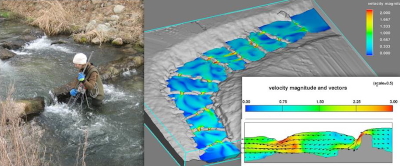 Numerical models for the simulation of flow processes
Numerical models for the simulation of flow processes
- Analysis and optimisation of hydraulic engineering structures in the context of structure rehabilitation and design (e.g. hydropower plants, weirs, withdrawal/return structures)
- Optimised operation of barrages with regard to power generation, flood protection, navigation
- Coupling of HN processes with automation technology; optimisation of water balance controllers
- Application of hybrid or coupled model technology in cooperation with physical modelling
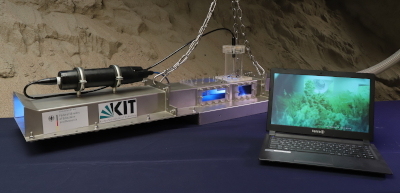 Solids transport / eco-hydraulics
Solids transport / eco-hydraulics
- Multidimensional simulation of solids transport in rivers, lakes and hydraulic structures
- Morphodynamic analysis and prognosis studies
- Simulation of technical and near-natural fishways as a basis for fish ecological assessments
- Flow analyses in the context of watercourse renaturation and revitalization
- Analysis and (further) development of near-natural flowing waters
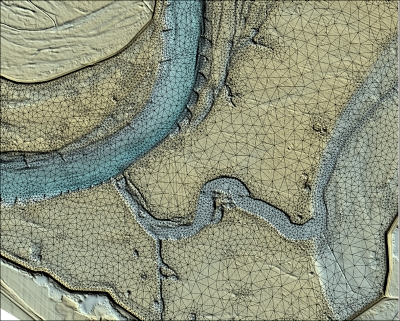 Cross-platform use of hardware and software
Cross-platform use of hardware and software
- CAD, GIS, simulation and visualisation systems
- Software development / use of modern development environments
- Linux / Windows
- System administration
- Computer-aided measurement technology
Mission
_700Px.jpg) We want to know exactly: flow processes in nature are highly complex and in the field of water-solid interaction (e.g. water-air, water-sediments or water-macroplastics) we use experimental methods to understand and quantitatively describe processes.
We want to know exactly: flow processes in nature are highly complex and in the field of water-solid interaction (e.g. water-air, water-sediments or water-macroplastics) we use experimental methods to understand and quantitatively describe processes.
With our scale models, we support planning processes for complex hydraulic engineering issues and contribute to improving planning reliability both in the area of technical infrastructure and in the area of ecological upgrading of watercourses.
Equipment
The Theodor Rehbock River Laboratory has 7 permanently installed experimental flumes covering an area of 2.300 m².
In addition, open areas are provided for constructing and operating further test stands and for physical model investigations.
The flumes, test stands and physical models are supplied with up to 500 l/s via frequency-converted pumps and various pump circuits.
_820x500px.jpg)
- Width/depth: 0,60 m / 0,50 m
- Length: 25 m
- Discharge: 150 l/s
- Automatic regulation, adjustable slope
- Convertible into wave channel
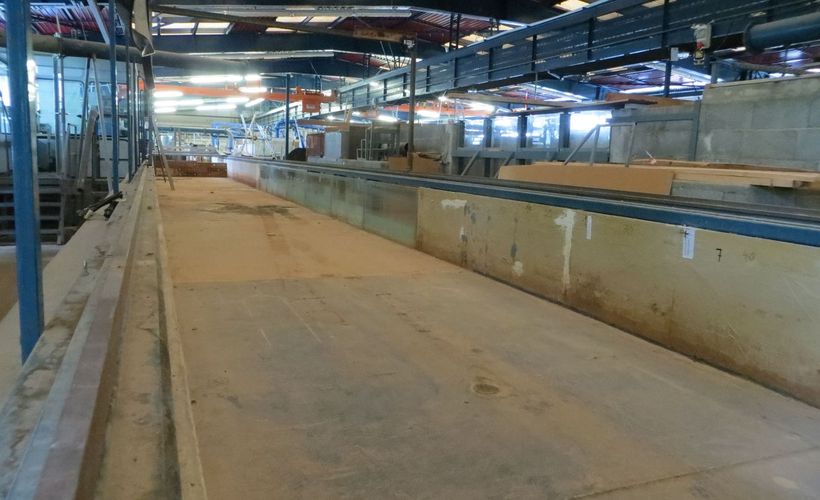
- Width/depth: 2,5 m / 0,50 m
- Length: 45 m
- Discharge: 500 l/s
- Automatic regualtion, constant slope
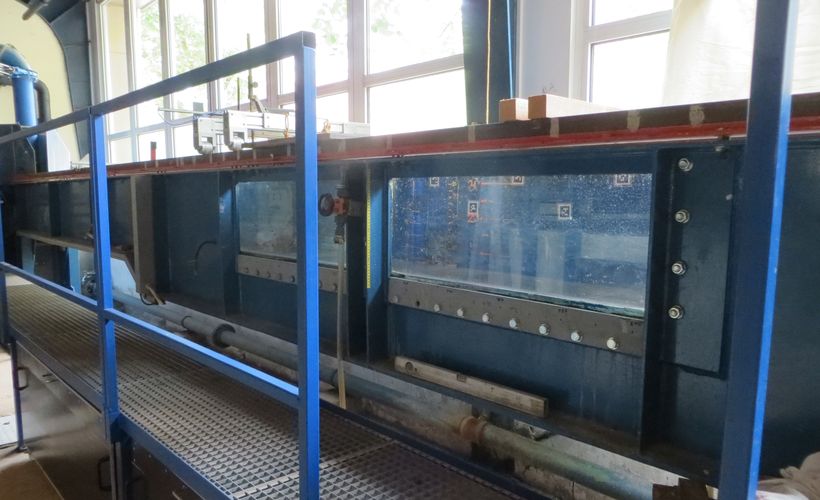
- Width/depth: 0,3 m / 0,4 m
- Length: 10 m
- Discharge: 50 l/s
- Automatic regulation, adjustable slope
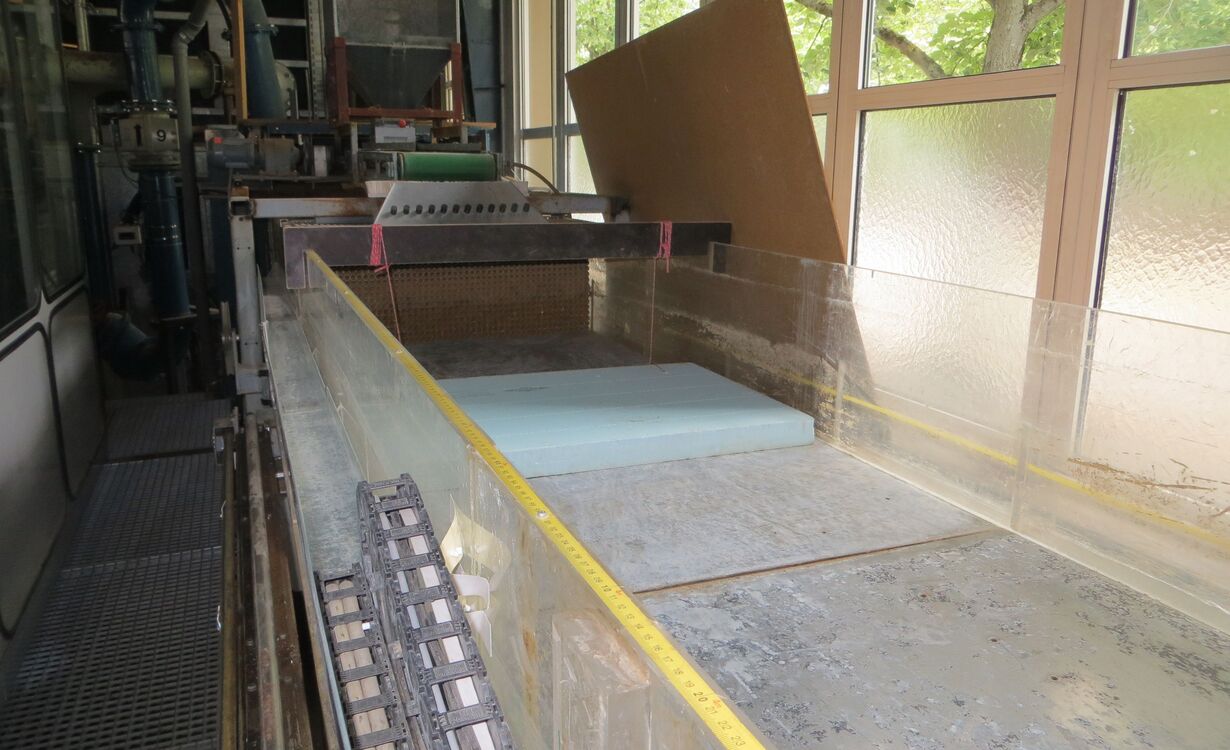
- Width/depth: 1,0 m / 0,25 m
- Length: 10 m
- Discharge: 50 l/s
- Automatic regulation, adjustable slope
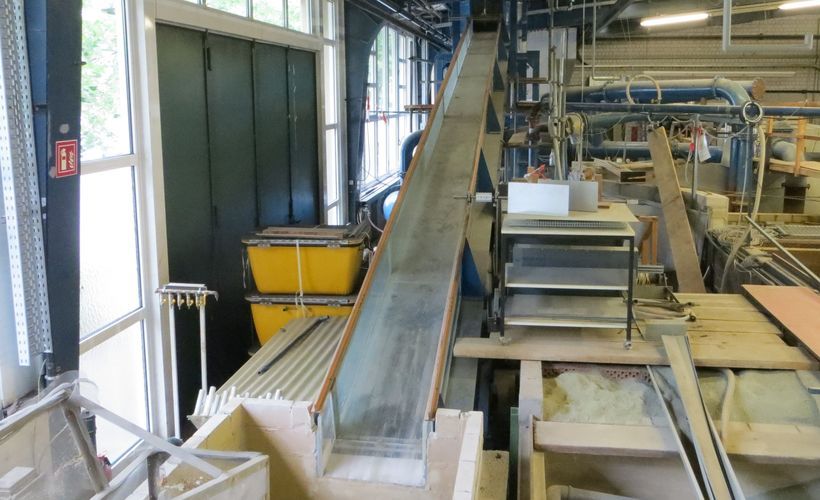
- Width/depth: 0,5 m / 0,20 m
- Length: 8 m
- Discharge: 100 l/s
- automatic regulation, adjustable slope, supercritical flow
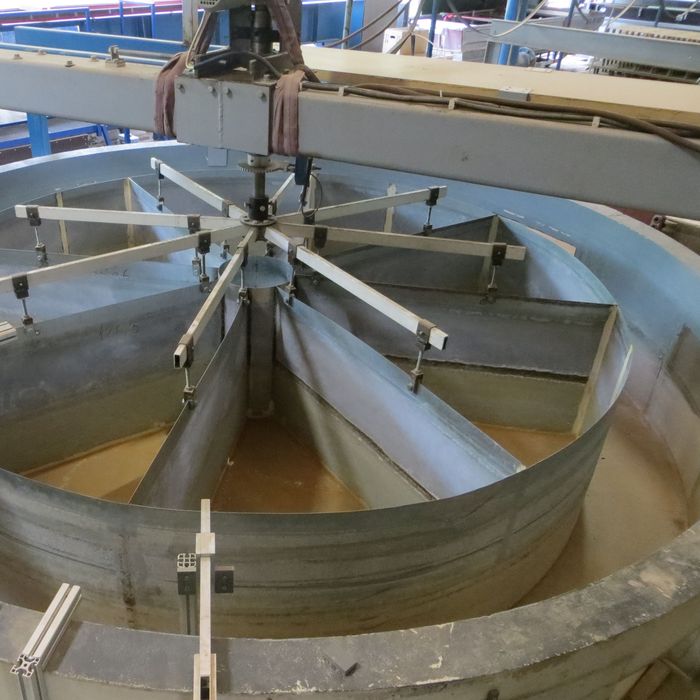
- Width/depth: 0,30 m / 0,40 m
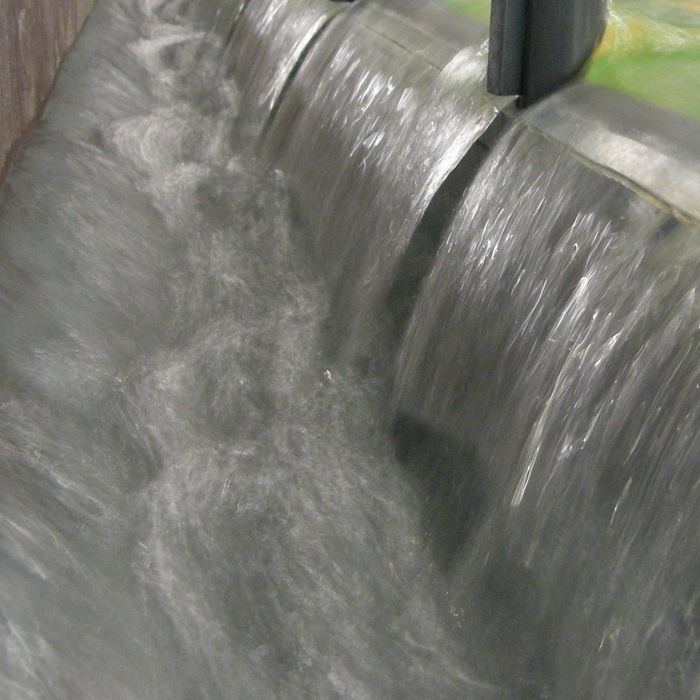
- Width/depth: 0,80 m / 0,30 m
- Length: 8 m
- Discharge: 100 l/s
- Automatic regulation, adjustable slope
- Partially mobile bed for investigations into scour formation
Measurement equipment
_700Px.jpg) Equipment IWU-WB (extract)
Equipment IWU-WB (extract)
- Nortek ADV Vectrino (3D)
- Dantec Flow Explorer, 2D-LDA
- Ott MF Pro (1d)
- ADCP survey boat
- HIPPO, In-situ determination of the critical shear stress (start of movement)
- Drone, Dji Mavic Mini
- Aluminium boat, flat-bottomed, 4 m long, 20 hp or electric, with various attachments (crane etc.)
History
_700Px.jpg)
In 1899, Theodor Rehbock was appointed Professor of Hydraulic Engineering at the Technical University of Karlsruhe. On his initiative, the river laboratory was built and inaugurated in 1901. It was one of the first hydraulic laboratories in the world in which hydraulic engineering projects were investigated on a smaller scale. Prof. Theodor Rehbock was head the laboratory until his retirement in 1934, and in 1939 it was renamed to Theodor Rehbock River Engineering Laboratory in honour of his achievements.
Hydraulic engineering had already played an important role at KIT (and its predecessor institutions) since it was founded by Johann Gottfried Tulla. But it was Theodor Rehbock who established systematic hydraulic engineering research in Karlsruhe and recognised the great opportunity that experimentation and the use of true-to-scale models in the laboratory opened up for the development of hydraulic engineering.
- Universitat de Valencia
- Cardiff University
- The University of Manchester
- Delft University of Technology
- Penn State University, USA
- Deltares, The Netherlands
- Utah Water Research Laboratory, USA
- IHE Delft Institute for Water Education, The Netherlands
- Bundesanstalt für Wasserbau, Germany
- ETHZurich, Switzerland
Seminar@IWU-WB - 2024, November, 22nd - M.Sc. Okba Mostefaoui |
|
|
Experimental Study of the Transport of Microplastics in an Open-channel Bifurcation |
|
Seminar@IWU-WB - 2024, September, 13th - Dr. Daniel Caviedes-Voullième |
|
|
Scaling-up computational hydrodynamics with HPC and SERGHEI
|
|
Seminar@IWU-WB - 2024, July, 19th - Dr. David Vetsch |
|
|
|
|
Seminar@IWU-WB - 2024, July, 05th - Prof.Benjamin Dewals |
|
|
When disasters strike repeatedly: A multi-year drought followed by a mega-flood in eastern Belgium
Watch the seminar video online
|
|
Seminar@IWG-WB - 2023, November, 24th - Associate Professor Stefan Felder |
|
|
New measurement methods to improve design and safety of hydraulic structures
|
|
Seminar@IWG-WB - 2023, October, 27th - Dr. João P. Leitão |
|
|
New data sources and modelling opportunities to reduce flood risk in urban areas
|
|
Seminar@IWG-WB - 2023, October, 6th - Prof. Carlo Gualtieri |
|
|
Mega-rivers under the global change: Some field observations from Amazon, Congo and Orinoco
|
|
Seminar@IWG-WB - 2023, September, 15th - Dr. Davide Vanzo |
|
|
Eco-morphodynamic modelling: Challenges (and opportunities) for river restoration and adaptation
|
|
Seminar@IWG-WB - 2023, June, 30th - Bettina Geisseler, Lawyer |
|
|
|
|
Seminar@IWG-WB - 2023, May, 12th - Dr. sc. (PhD) Sebastian Schwindt |
|
|
Research innovations for Connecting Water Ressources
|
|
Seminar@IWG-WB - 2023, March, 31st - Prof. Laurent Schmitt |
|
|
|
Picture: David Eschbach |
Seminar@IWG-WB - 2022, October, 28th - Xiaofeng Liu, Ph.D., P.E. |
|
|
Physics-Based and Data-Driven Modeling in Environmental Hydraulics
|
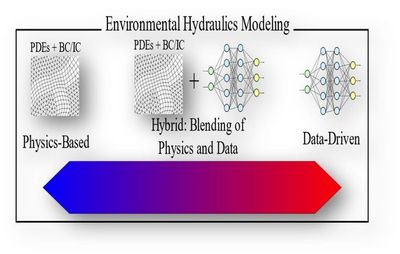 |
Seminar@IWG-WB - 2022, July, 29th - Dr. Valentin Chardon |
|
|
|
|
Seminar@IWG-WB - 2022, July, 22nd - Dr. Isabella Schalko |
|
|
Design of wood retention structures in rivers
|
|
Seminar@IWG-WB - 2022, May, 22nd - Dr. Victor Chavarrias |
|
|
Morphodynamic modelling with mixed-size sediment
|
|

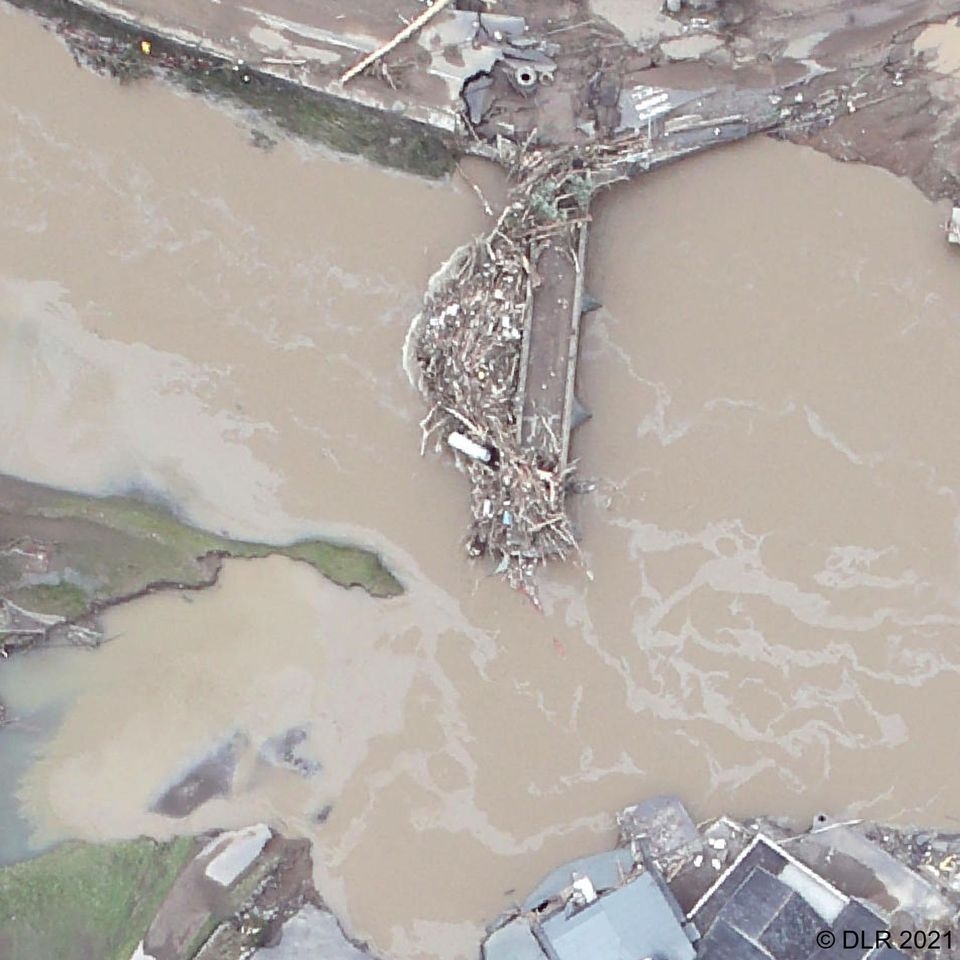
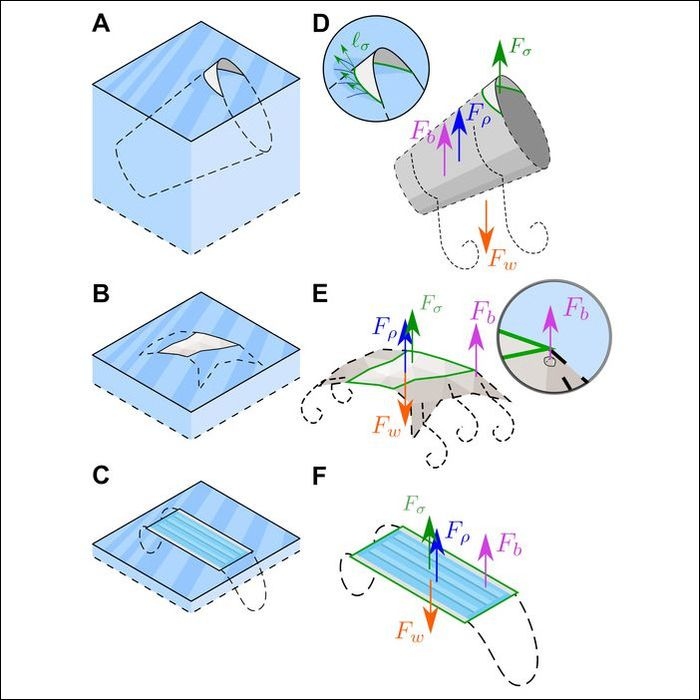
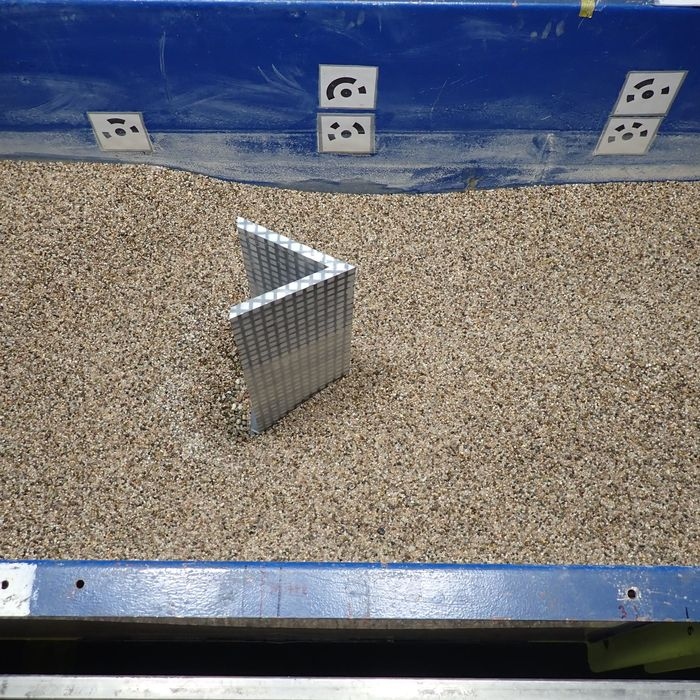
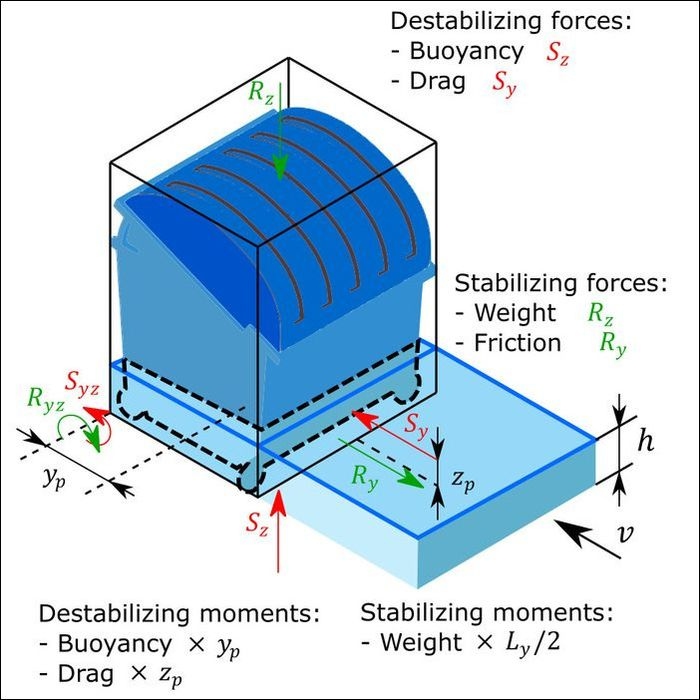

_1240x620Px.jpg)
_1240x620Px.jpg)
_1240x620Px.jpg)
_1240x620Px.jpg)
